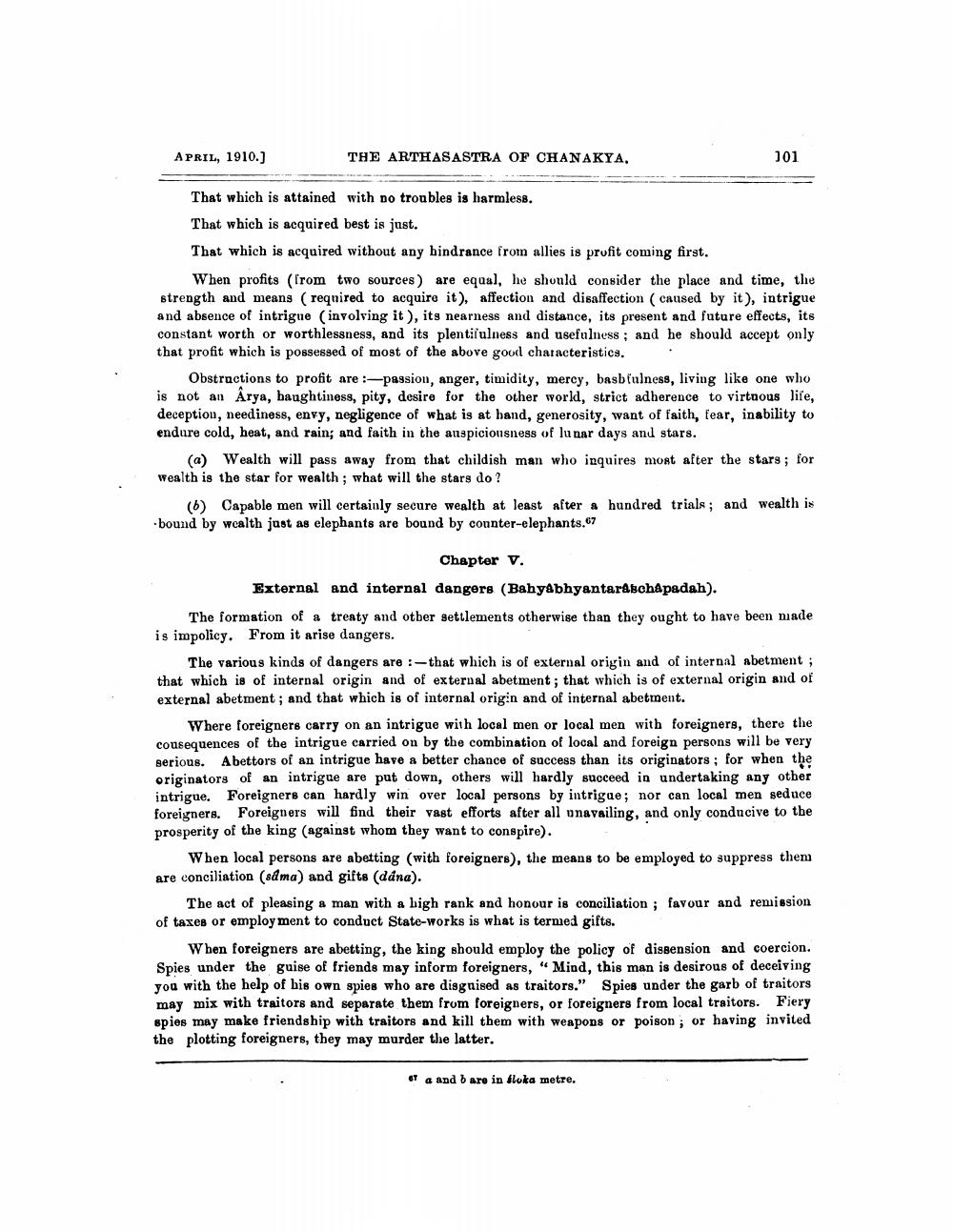________________
APRIL, 1910.)
THE ARTHASASTRA OF CHANAKYA.
101
That which is attained with po troubles is harmless. That which is acquired best is just. That which is acquired without any hindrance from allies is prufit coming first.
When profits from two sources) are equal, he should consider the place and time, the strength and means (reqnired to acquire it), affection and disaffection caused by it), intrigue and absence of intrigue (involving it), its nearness and distance, its present and future effects, its constant worth or worthlessness, and its plentifulness and usefulness; and he should accept only that profit which is possessed of most of the above good characteristics.
Obstractions to profit are :-passion, anger, timidity, mercy, basbfulness, living like one who is not an Arya, baughtiness, pity, desire for the other world, strict adherence to virtuous life, deception, neediness, envy, negligence of what is at hand, generosity, want of faith, fear, inability to endure cold, heat, and rain; and faith in the auspiciousness of lunar days and stars.
(a) Wealth will pass away from that childish man who inquires most after the stars; for wealth is the star for wealth ; what will the stars do?
(6) Capable men will certainly secure wealth at least after a hundred trials; and wealth is · bound by wealth just as elephants are bound by counter-elephants.67
Chapter v.
External and internal dangers (Bahyabhyantarabchapadah). The formation of a treaty and other settlements otherwise than they ought to have been niade is impolicy. From it arise dangers.
The various kinds of dangers are :- that which is of external origin and of internal abetment; that which is of internal origin and of external abetment; that which is of external origin and of external abetment; and that which is of internal origin and of internal abetment.
Where foreigners carry on an intrigue with local men or local men with foreigners, there the cousequences of the intrigue carried on by the combination of local and foreign persons will be very serious. Abettors of an intrigue have a better chance of success than its originators; for when the originators of an intrigue are put down, others will hardly succeed in undertaking any other intrigue. Foreigners can hardly win over local persons by intrigue; nor can local men seduce foreigners. Foreigners will find their vast efforts after all unavailing, and only conducive to the prosperity of the king (against whom they want to conspire).
When local persons are abetting (with foreigners), the means to be employed to suppress them are conciliation (sdma) and gifts (dana).
The act of pleasing & man with a high rank and honour is conciliation ; favour and remission of taxes or employment to conduct State-works is what is termed gifts.
When foreigners are abetting, the king should employ the policy of dissension and coercion. Spies under the guise of friends may inform foreigners, "Mind, this man is desirous of deceiving you with the help of his own spies who are disguised as traitors." Spies under the garb of traitors may mix with traitors and separate them from foreigners, or foreigners from local traitors. Fiery spies may make friendship with traitors and kill them with weapons or poison, or having invited the plotting foreigners, they may murder the latter.
OT a and b are in fluka metre.




